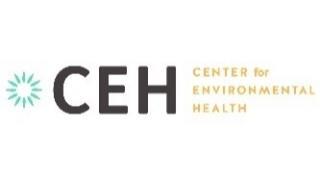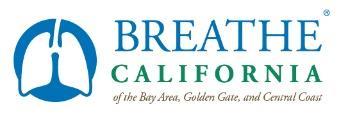
















September 16, 2024

Administrator Michael Regan













U.S. Environmental Protection Agency
1200 Pennsylvania Avenue NW Washington, D.C. 20004
RE: Approve California’s Advanced Clean Fleets Rule Docket ID No. EPA–HQ–OAR–2023–0589
Dear Administrator Regan:
The undersigned California health and medical organizations urge the United States Environmental Protection Agency (EPA) to act swiftly to authorize California’s Clean Air Act waiver request to implement the Advanced Clean Fleets (ACF) rule. The ACF rule was designed to support attainment of National Ambient Air Quality Standards by reducing harmful pollution from on-road heavy-duty transportation sector, a dominant source of criteria and climate pollution in the state
Despite decades of progress made under the federal Clean Air Act, over 90 percent of Californians live in a community impacted by unhealthy levels of air pollution, according to the American Lung Association’s “State of the Air” 2024 report. California cities continue to dominate the lists of the most polluted cities in America for both ozone (smog) and particle pollution (soot). Poor air quality causes a host of negative health impacts, especially to frontline communities living near major trucking routes serving port, railyard and warehouse operations with large truck fleet operations and associated pollution impacts. Health impacts associated with heavy traffic include cardiovascular and respiratory illnesses, including asthma exacerbations, new onset of asthma in children and adults, increased risk of respiratory infection, and increased risk of premature death.1
Heavy-duty vehicles subject to the zero-emission fleet and new vehicle sales requirements of the ACF are a major source of these pollutants along with diesel particulate matter, a toxic air contaminant, known to cause cancer to and a wide range of health consequences to over-burdened communities Implementation of the ACF standards will significantly reduce community diesel exhaust exposures, regional air pollution and climate pollution by ensuring the transition of large truck fleets to zeroemission vehicles and ushering in full zero-emission sales of new trucks in California by 2036. These measures are critical for transitioning away from diesel and other fossil fuels, improving air quality, and moving forward to meeting important federal clean air standards as required by the Clean Air Act.
Implementation of the ACF rule is projected to reduce over 146,000 tons of smogforming oxides of nitrogen and over 6,800 tons of fine particles by 2050, resulting in the following health benefits in California:
- $26.5 billion in health benefits between 2024 to 2050
- Over 2,500 lives saved
- Over 870 hospitalizations avoided for cardiovascular and respiratory illnesses
- Over 1,100 emergency room visits avoided 2
In the development of this rule, the California Air Resources Board (CARB) hosted two dozen public workshops and hearings in multiple languages, and hundreds of additional meetings with community members, clean air advocates, and industry representatives, to ensure a transition plan to zero-emission vehicles for heavy-duty trucks that will improve public health and save lives.
The federal Clean Air Act provides California with the authority to enact standards like the Advanced Clean Fleets rule and requires EPA to approve waivers for state standards that are at least as protective of public health as applicable Federal
1 Health Effects Institute Panel on the Health Effects of Long-Term Exposure to Traffic-Related Air Pollution. 2022. Systematic Review and Meta-analysis of Selected Health Effects of Long-Term Exposure to Traffic-Related Air Pollution. Special Report 23. https://www.healtheffects.org/system/files/hei-special-report-23_6.pdf
2 California Air Resources Board. Appendix B: Updated Cost and Benefits Analysis. August 2023. Page 7. https://ww2.arb.ca.gov/sites/default/files/barcu/regact/2022/acf22/acf15db.pdf; and Updated Informational Digest, August 2023. Page 4. https://ww2.arb.ca.gov/sites/default/files/barcu/regact/2022/acf22/uidpdf.pdf
standards. The Advanced Clean Fleets waiver meets this test: EPA must approve the waiver and California must implement the standard without further delay.
We urge EPA to approve the ACF rule to realize much-needed health benefits for Californians as the program works to support attainment of health-protective clean air standards. EPA must act to approve this waiver request, and should move forward to complete the authorization of remaining California requests.
Sincerely,
Alameda-Contra Costa Medical Association
Alliance of Nurses for Healthy Environments
American Lung Association
Asthma Coalition of Los Angeles County
Breathe California of the Bay Area, Golden Gate and Central Coast
Breathe Southern California
BUDDIGA FAMILY ALLERGY ASTHMA
California Black Health Network
California Nurses for Environmental Health and Justice
California Thoracic Society
Center for Environmental Health
Children Now
Climate Health Now
Inland Empire Climate Health Action Network
LifeLong Medical Care
Long Beach Alliance for Children with Asthma
Los Angeles Chapter - National Association of Pediatric Nurse Practitioners (NAPNAP)
Maternal and Child Health Access
National Association of Pediatric Nurse Practitioners, San Francisco Bay Area Chapter
Physicians for Social Responsibility/Sacramento
Prevention Institute
Public Health Advocates
Public Health Institute
Regional Asthma Management & Prevention
San Bernardino County Medical Society
San Francisco Bay Area National Association of Hispanic Nurses
San Francisco Bay Physicians for Social Responsibility
Santa Clara County Medical Association
Society of Latinx Nurses
St. John's Community Health
TCC Family Health
